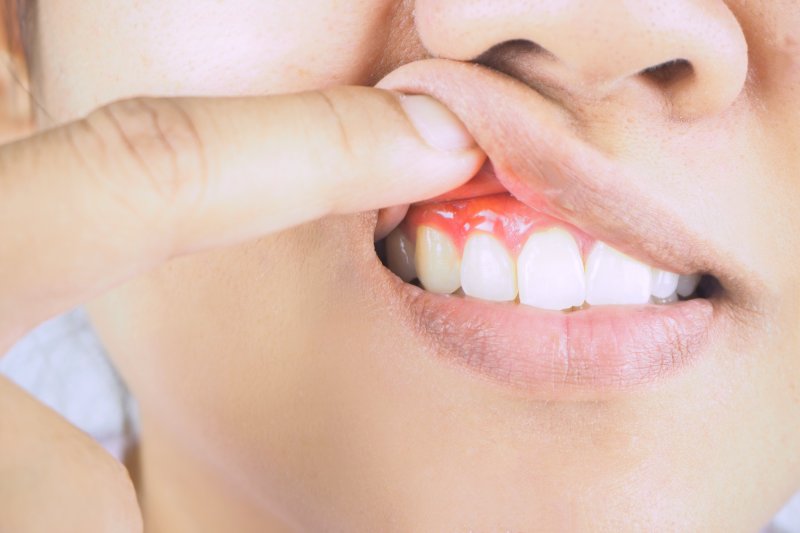Can Gum Disease Be Genetic?
August 20, 2021

Untreated gum disease is a leading cause of tooth loss, and as such it’s a condition you want to avoid at all costs. You’re probably already aware that poor oral hygiene is a major risk factor when it comes to gum disease, but did you know that your genes could play as role as well? If your parents routinely had trouble with swollen or bleeding gums, then your own oral health might also be at an increased risk.
How Family History Affects Gum Disease
Genetics don’t directly cause gum disease, but they can leave you more susceptible to it. While the exact basis has yet to be determined, researchers have found that there are 38 genes – such as the FAM5C gene – that are linked to an increased risk of aggressive periodontal disease. In short, you may be more likely to develop gum disease if you inherited one of these genes.
That’s not to say that environmental factors don’t still play a significant role. Not brushing your teeth on a regular basis, eating too many sugary foods, and smoking can all increase harmful bacteria levels in your mouth and lead to gum disease and other problems. However, your genes can affect your body’s overall ability to resist gum inflammation. Two people can brush and floss the same amount every day, but genetics can still leave one of them more vulnerable to attacks from oral bacteria. As such, it’s important for your dentist to be aware of any family history you might have for gum disease, as it generally means that extra vigilance is required when it comes to cleaning the teeth and gums.
What You Can Do to Protect Yourself from Gum Disease
Genetics don’t guarantee that you will suffer from gum disease at some point in your life; they simply make preventive care all the more vital. The following tips can help you keep your gums as safe as possible:
- Maintain a strict brushing and flossing routine. Two times a day is the minimum, but a third brushing session could make a big difference.
- Do not smoke. If you already use tobacco products, give them up as soon as possible.
- Be wary of sugary or carbohydrate-filled foods that contribute to gum disease and tooth decay.
- If you have a medical condition like diabetes that increases your risk for inflammation, visit your doctor to figure out the best strategy for keeping it under control.
Schedule a checkup with your dentist every six months so that they can look for signs of gingivitis as well as periodontitis. Let them know right away if anyone else in your family has had gum disease; it’s important to be fully aware of your oral health and all the factors that can impact it.
About the Author
Dr. Jacob Milner became a dentist in part thanks to a close family friend who also served as his dental mentor. He enjoys working with patients of all ages, and he has completed advanced training in many different dental areas. At his practice, Dolfield Dental of Owings Mills, he offers scaling and root planing as well as antibiotic therapy as solutions for gum disease. If you are concerned about your gum health or your family oral health history, you can get in touch with Dr. Milner via his website or by calling (410) 902-4110.
No Comments
No comments yet.
RSS feed for comments on this post.
Sorry, the comment form is closed at this time.
